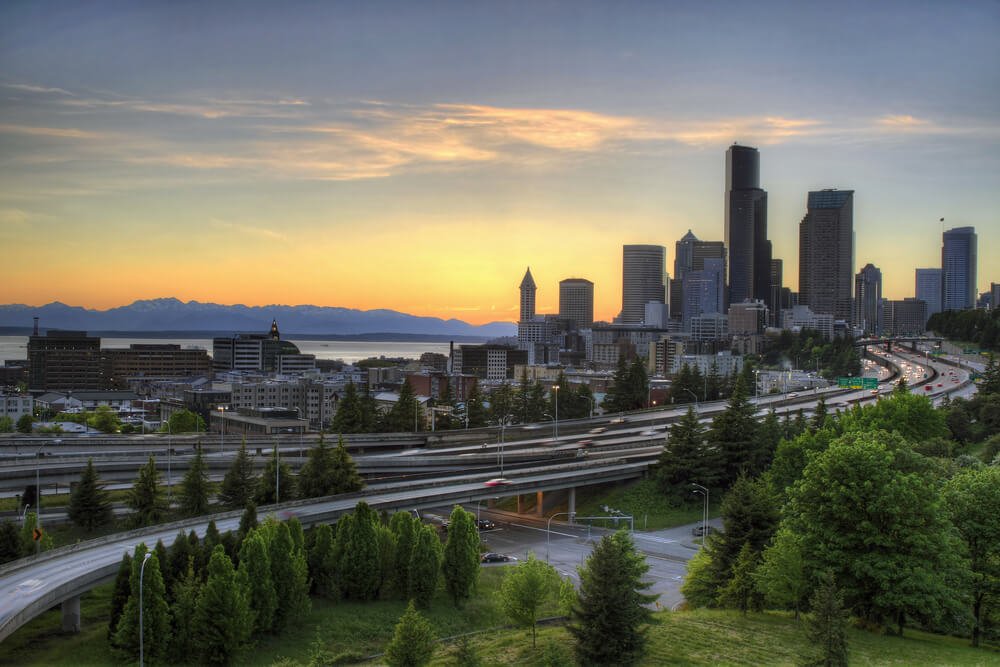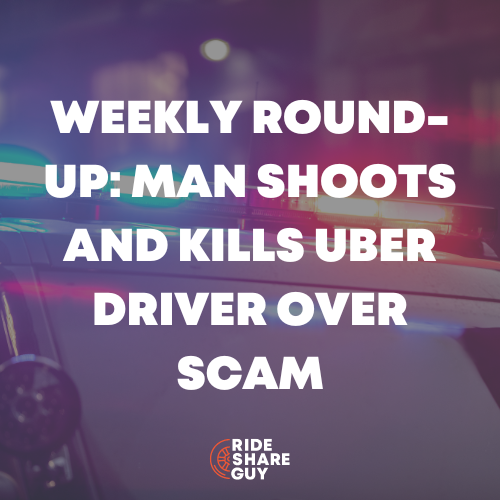There’s a lot to cover in this week’s roundup, from new Paycheck Protection Program (PPP) funding to disappointing news about a positive rideshare company from Austin, TX. Plus, Instacart threatens to leave Seattle while at the same time, Instacart’s CEO officially becomes a billionaire. Senior RSG contributor John Ince breaks it all down below.
 Uber debuts program to help drivers apply for PPP loans through lender Kabbage [Fortune]
Uber debuts program to help drivers apply for PPP loans through lender Kabbage [Fortune]
Sum and Substance: Uber drivers will be able to more easily apply for federal loans that are intended to help workers weather the coronavirus pandemic and the economic pain it has caused.
The ride-hailing company on Tuesday said it has partnered with fintech lender Kabbage to provide drivers with a streamlined application for Paycheck Protection Program loans managed by the Small Business Administration.
Uber’s drivers are independent contractors, who are recruited with the pitch that they’ll be their own boss. But in the past few months, drivers have seen the downside of that model, with the coronavirus reducing the number of rides they provide as much as 80%.
The new partnership is intended to make it easier for drivers to get the help they need. “They basically will go through a totally separate path that’s purpose-built for Uber drivers,” according to Kabbage CEO Rob Frohwein.
My Take: This is a valuable service, but beware in California. With the PUC ruling last week, that Uber drivers are Uber company employees, it’s really an active question now. Are drivers independent contractors or employees? If you’re an employee, you can’t apply for this program.
TX: Ride-hailing nonprofit RideAustin to shut down [MassTransitMag]
Sum and Substance: RideAustin, a local nonprofit that emerged as an alternative to ride-hailing giants Uber and Lyft during their brief departure from the city but struggled to carve its place in the market upon their return, is shutting down for good….
RideAustin provided three million rides and donated $450,000 to local charities, according to its email. RideAustin paid drivers $38 million and had 388,000 riders.
The service began operating in 2016 after Uber and Lyft left Austin following a battle with the city over background checks for ride-hailing drivers.
My Take: So it goes. RideAustin was once the local savior for ridesharing in Austin. Then the legislature stepped into the picture and suddenly Uber and Lyft were back. Times change and so do the players in this game.
This is disappointing for drivers, however. Look at all the good RideAustin did, with donations and higher pay for drivers. Is the takeaway that ‘doing good’ isn’t profitable – or successful?
Uber Lost Out on Grubhub but Here Are Other Potential Acquisition Targets [Barrons]
Sum and Substance: With the announcement last week that Grubhub has agreed to be acquired by Amsterdam-based Just Eat Takeaway (TKAYY), Uber Technologies (UBER) shares hit the skids. As was widely reported, Uber itself had been in serious talks to buy Grubhub, which combined with its own Uber Eats unit would have vaulted the company to the front of the pack in the U.S. food delivery business. But the two sides couldn’t agree to terms.
Instead of industry consolidation, Grubhub (GRUB) gets new, deeper pockets for its battle for market share with Uber Eats, DoorDash and Postmates. Adding gasoline to the fire, DoorDash is in talks for a new round of financing that will boost its valuation to $15 billion – and give it more ammo in the battle for market share in the already competitive market.
My Take: Uber is in acquisition mode, and they didn’t catch their prey with Grubhub But that doesn’t mean they’re going to sit around. Uber CEO Dara Khosrowshahi knows that he’s under pressure – so expect other acquisitions. The above article offers a list of possibilities.
Uber pushes into on-demand public transit with its first SaaS partnership [Techcrunch]
Sum and Substance: Uber will manage an on-demand service for Marin County in the San Francisco Bay area with a Software as a Service product as part of the ride-hailing company’s broader strategy to push into public transit.
Marin Transit will pay Uber a subscription fee to use its management software to facilitate requesting, matching and tracking of its high-occupancy vehicle fleet, starting with a service that operates along the Highway 101 corridor. Marin Transit trips will show up in the Uber app and let users book and even share rides.
Users in Marin County will see a new option called Marin Connect when they open the Uber app. The feature allows customers to book a ride on the six-seater and wheelchair-accessible vans operated by Marin Transit. Fares are $4 per mile or $3 for Marin Access riders. There is no booking fee, Uber said. The app will allow riders to share the ride if they’re traveling in the same direction. For now, the maximum occupancy is two riders.
My Take: This seems to be a new potential revenue source for Uber. It’s difficult to know how much revenue Uber will garner from this. But give Uber credit, they’re pushing into new areas during this pandemic. This may just be the toe in the water.
Hazard pay for gig workers is a choice—but in Seattle it’s about to become law [Quartz]
Sum and Substance: Back in March, when the coronavirus crisis in the US was first escalating, some Instacart delivery workers went on strike, demanding better protections and compensation. At the time, Instacart said the strike had “no impact.” But now that’s sounding debatable.
On June 15, the Seattle City Council voted unanimously to require food delivery companies such as Instacart and Grubhub to pay gig workers an extra $2.50 per order, and to do so for the duration of the Covid-19 civil emergency first declared by Seattle’s mayor on March 3.
Though Instacart and other gig companies vowed to lobby Seattle mayor Jenny Durkan to veto the legislation, Kamaria Hightower, a spokesperson for the mayor’s office, tells Quartz “the bill should be signed by the end of next week.”
My Take: This seems like a very reasonable legislation, given the broader environment in which these people are working – especially when one considers the financial situation of Instacart’s CEO (See next article).
Instacart Founder Apoorva Mehta Becomes A Billionaire After New Funding Round [Forbes]
Sum and Substance: Instacart’s 33 year old founder and CEO is now a billionaire. Apoorva Mehta, who started the grocery delivery firm in 2012, has seen demand for his company’s services skyrocket in the wake of the coronavirus pandemic.
My Take: Instacart is a success story. No doubt about it. But how well does it treat its employees? Not so good.
Doordash IPO Postponed! They Raised $400 Million Dollars! [RSG YouTube]
In this video, RSG contributor Elijah covers DoorDash’s postponed IPO – they raised $400 million! What would this have meant for drivers?
Potentially, an increase in pay… but it also presents challenges for the delivery market. If DoorDash, Postmates, etc. begin to merge, they could become a monopoly… meaning lower pay for drivers! If you only have one company to work for, where’s the incentive for them to pay you more? You don’t have choices!
This is definitely something to keep an eye on – we’ll keep you updated.
Readers, what do you think of this week’s roundup?
-John @ RSG




